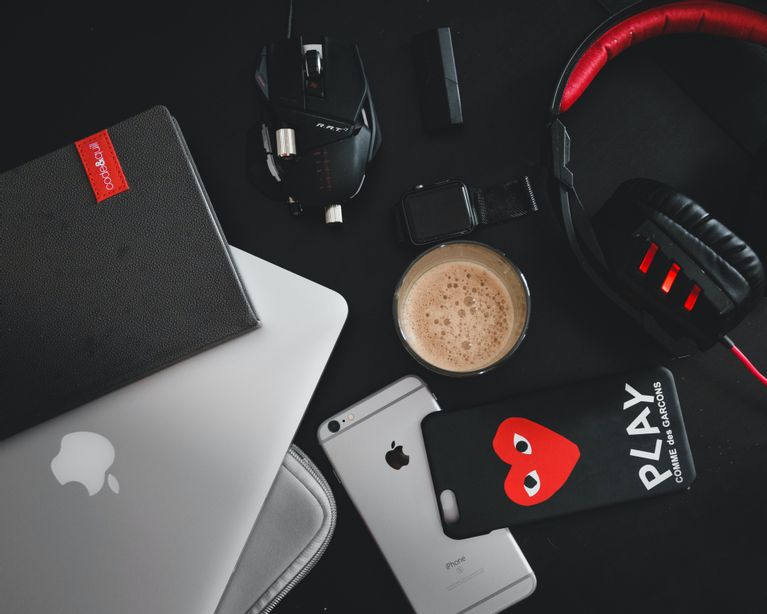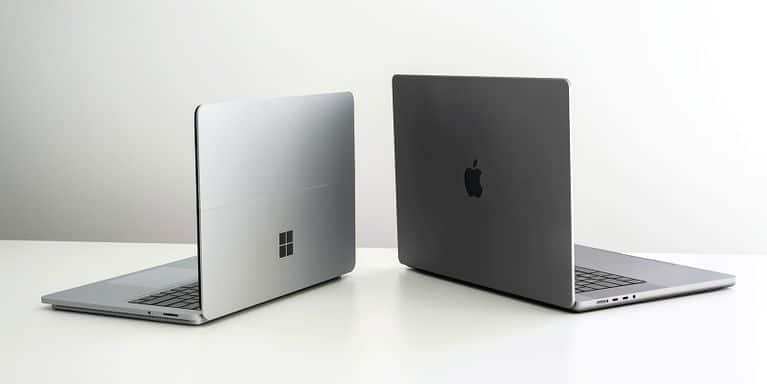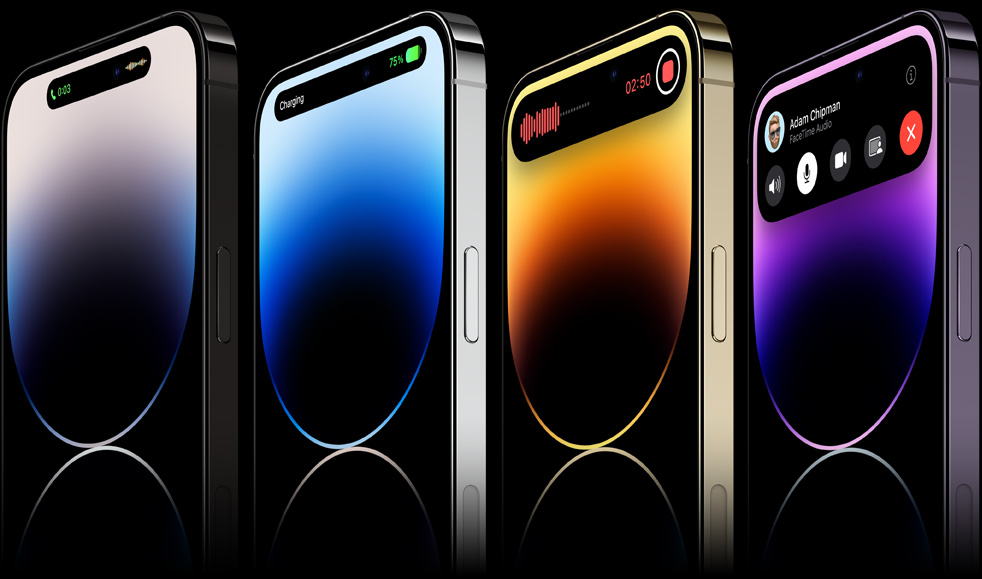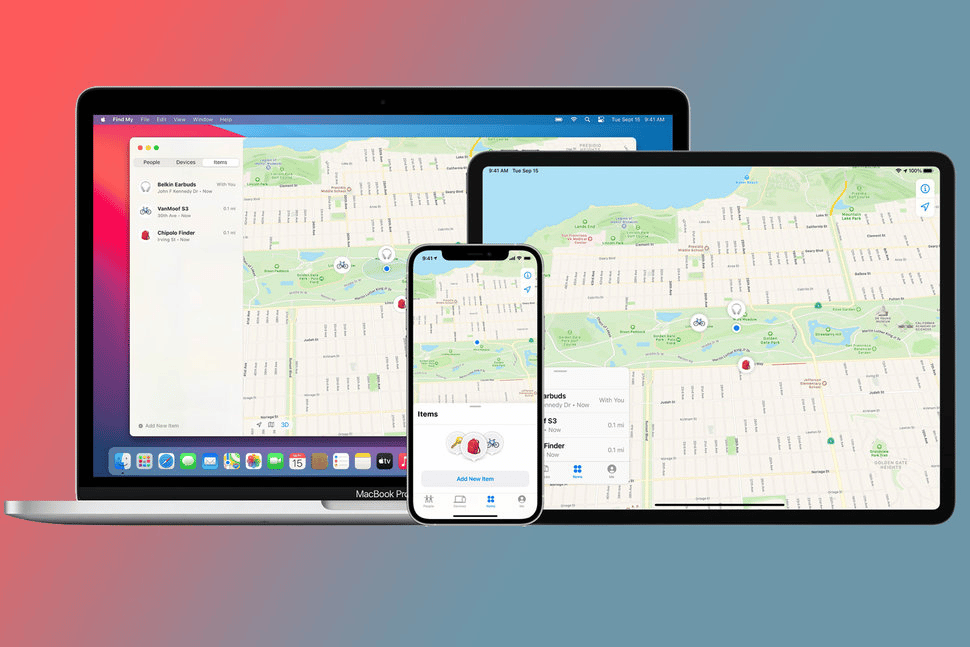There was a time in tech history when Apple was the hot young thing trying to take a piece of Microsoft’s pie. However, in only a few years, the tables have turned and Apple has become a leader in technology, culture, and innovation.
But what’s so special about Apple? And why has Windows been losing ground? In this article, we’ll talk about all the different reasons Windows is losing users to Apple.

1. Timeless Design
Windows has been a longstanding pioneer in the tech industry. In fact, we owe Windows for many innovations such as the CD-ROM drive and the shift to the Intel Pentium processor. However, this long history also means the appearance of Windows laptops have changed dramatically with time, and many users have grown up with its evolution in mind.
Through appearance alone, many Windows users can identify what year a certain model was released. Aside from this, the Windows OS is often associated with several manufacturers. With this, there is little consistency as to what users perceive as a Windows laptop.
On the other hand, when Apple cracked the code for a great-looking laptop, it kept its base design for years. For this reason, the MacBook models of today have the kind of sleek, timeless look that doesn’t make it look as dated as its contemporaries.
In short, Apple devices scream style.
2. Seamless Cloud Integration
Using iCloud integration, Apple creates a world where all its devices live in harmony. Features like iMessage, Handoff, and AirDrop make it possible for iPhones, iPads, and Macs to work simultaneously as a unit.
The FindMy Network also plays a critical role in the integration of not just its Mac products, but also Apple’s increasing range of peripherals, which include AirTags, AirPods, and other MagSafe-compatible accessories like cases and leather wallets.
Additionally, Apple commits to releasing a few devices at a time. Aside from being compatible with its system, each device is a puzzle piece that fits perfectly in the ecosystem.
Apple was reportedly forced to halt iPhone and iPad assembly for the first time in a decade
Apple was forced to cease iPhone and iPad production for several days when it was supposed to kick into high gear, according to a report from Nikkei Asia. It’s no secret that Apple hasn’t been immune to the global supply chain shortages despite its enormous purchasing power. The tech giant previously lowered its iPhone 13 production goals for the year and had to cut back on the iPad’s production to allocate more parts for its mobile flagship devices. But this is reportedly the first time in a decade that the company had to cease operations at its factories during China’s Golden Week.
In comparison, Microsoft has OneDrive, its flagship cloud service. Unlike iCloud, Microsoft OneDrive is popular for its integration with Office 365, its main product package of tools, which includes Word, PowerPoint, Excel, and other classic programs. With OneDrive, users can sync progress and files within its tools across devices.
However, with its strong collaborative focus, Microsoft OneDrive primarily targets professionals and institutions. For this reason, it is often associated with work and not necessarily for things like personal use or entertainment. It also fails to integrate itself across the entire operating system in the way that iCloud can do.
3. Environmentally Friendly Positioning
Now that you have signed in with your Apple ID, go back to the main screen and tap on “Find my iPhone.” On the next screen, scroll down until you see the option to turn on location services. Tap on the toggle switch to enable it.
Across generations, changes in values have influenced the way customers choose to spend their money. While Gen Z are only now beginning to join the workforce, they’re likely to be a dominant segment with purchasing power in the future. With climate change being a primary concern, there is an obvious trend towards sustainability.
While Microsoft made its commitment to the right-to-repair agenda before Apple, its associations with thousands of manufacturing partners make it difficult to solidify overall claims of sustainability. With the majority of desktop computers using Windows as an operating system, it’s difficult for ordinary users to disassociate it from the hardware manufacturers who use it.
Alongside an exclusive operating system, Apple has tighter control over its supply chain and production processes. With this, Apple as a brand is more cohesive in its commitment to net-zero carbon emissions. In addition, Apple has positioned itself as an environmentally friendly company, especially after the launch of the iPhone 13.
4. Security and Privacy Focused Agenda
These days, many users are disillusioned with the amount of data collected about them on the internet. While both Windows and Apple have long positioned themselves as brands that care about consumer privacy, Apple has been slowly breaking away and leading the pack.
You’re likely being tracked by Google. Turn off these settings to stop Google tracking
If you are using any Google app, it’s likely you’re being tracked. Even if you turned off location history on your Google account, you’re not completely in the clear yet. While disabling that setting sounds like a one-and-done solution, some Google apps are still storing your location data. Just opening the Google Maps app or using Google search on any platform logs your approximate location with a time stamp.
When it comes to privacy, Microsoft has been hard at work to create data classifications that can be used to protect privacy for its collaborative tools, as reported by CSO. While this move definitely pleases its professional customers, Apple takes a different approach.
In 2021, Apple implemented privacy labels and quick ways for users to opt out of tracking by apps in the App Store. With these moves, Apple quickly became top of mind for ordinary users who prefer exposing as little data as possible to companies looking to profit from them.
In addition, Apple has long benefitted from the positive perception associated with its supposed security. Because of its control over both the hardware and software, Apple has a tighter grip on many of its app developers and the stringent hoops they have to pass to be made available to their users.
5. Apple as a Status Symbol
Even Apple fans will acknowledge that Apple doesn’t always have affordability in mind for its products. While Apple has introduced lower cost, entry-level devices in recent times, many consumers will acknowledge that you can get more bang for your back with a Windows machine.
For the longest time, Windows was seen as the computer for serious power users. In fact, its brand is synonymous with apps like Word, PowerPoint, and Excel, which every major business and institution of learning are subscribed to.
However, Apple has successfully positioned itself as an aspirational brand. With its high price point and lifestyle-oriented advertising, Apple doesn’t just sell products—it sells the appearance of affluence.
Unlike Windows, Apple takes this a step further with its various rules on its product placement guides. According to film director Rian Johnson, as reported by The Guardian, Apple only lets its products appear in media if they’re used by the good guys (and everyone wants to look like the rich, good guy).
Microsoft vs. Apple: Who Will Win?
While Microsoft was king at the time that processing power was key, Apple has proven that it takes more than computing power to win customers to your side. Although, this isn’t stopping Apple from developing technology that can rival even Microsoft’s capabilities.
However, all is not lost. Microsoft is still the preferred OS for many corporations for its flexible security measures, gamers for its value-for-money proposition, and those who care about getting the best value.
With this, Apple is not a clear winner in its battle against Microsoft. As consumers vote for the kind of world they want to live in with their wallets, Microsoft is still fighting to position itself with the values that the next generation resonates with—sustainable, privacy-focused, and timeless.
Facebook: https://www.facebook.com/pastfutur.official
Twitter: https://twitter.com/PastFutur
Linkedin: https://www.linkedin.com/company/pastfutur
Telegram: https://t.me/pastfutur_official



https://thehiddenwiki.pro